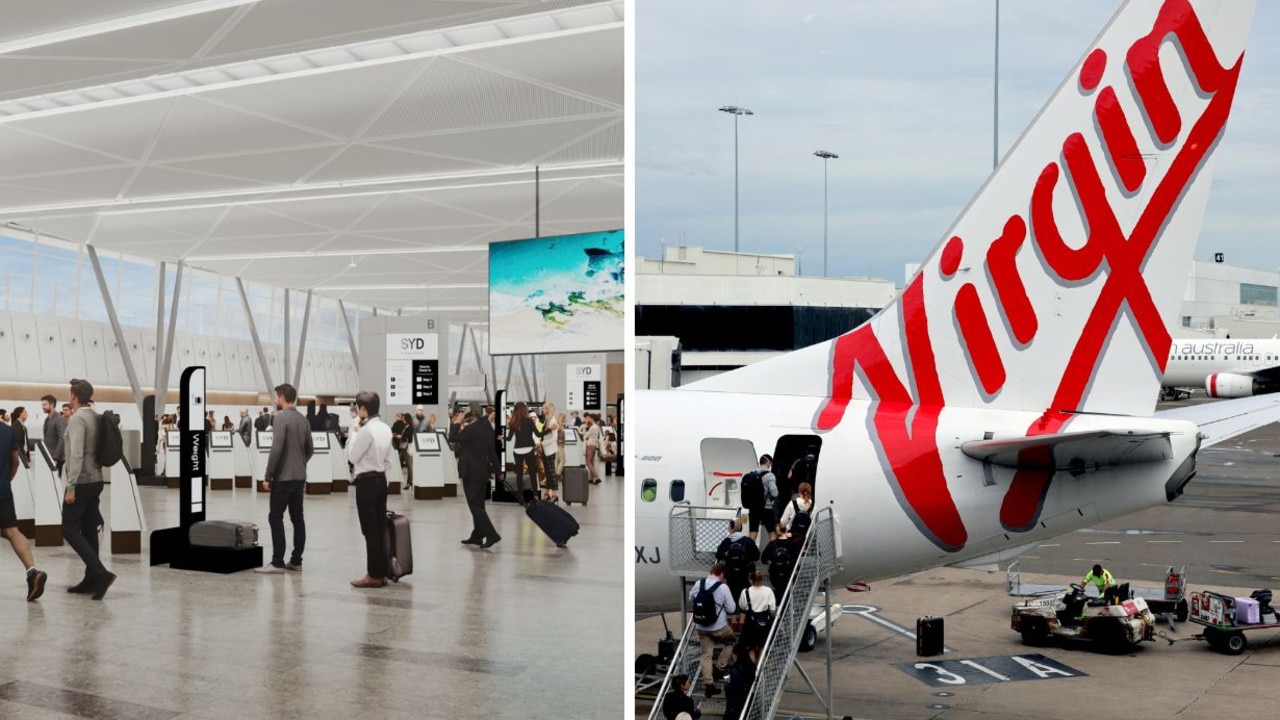Australian airport self-service technology could make flying a whole lot less annoying
An Aussie company is rolling out a hi-tech solution that promises to eliminate some of the most annoying airport hassles.
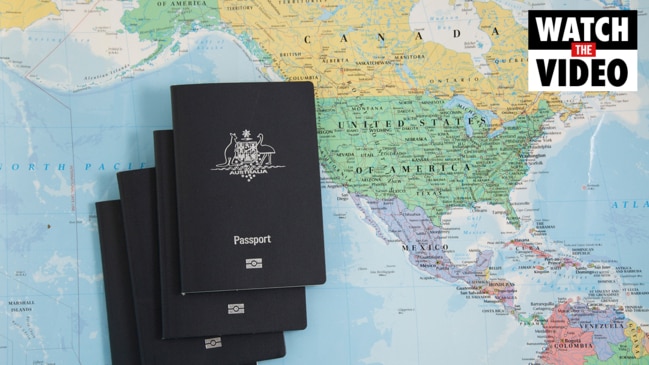
Check-in lines, lost bags and boarding pass hassle. These are some of the more annoying aspects of travelling that an Australian tech company promises will be eliminated as it streamlines the flying experience.
Elenium uses biometric technology — or, put loosely, facial recognition — to allow the passenger to seamlessly cruise right through the airport and onto the plane without printing boarding passes or bag tags.
The company has partnered with Etihad Airlines and the technology will begin to be rolled out at the carrier’s host airport by the end of this year.
As well as biometrics, the product uses voice recognition, artificial intelligence and cloud technologies to cut out the need to scan boarding passes, manually enter of travel details and confusing user interfaces.
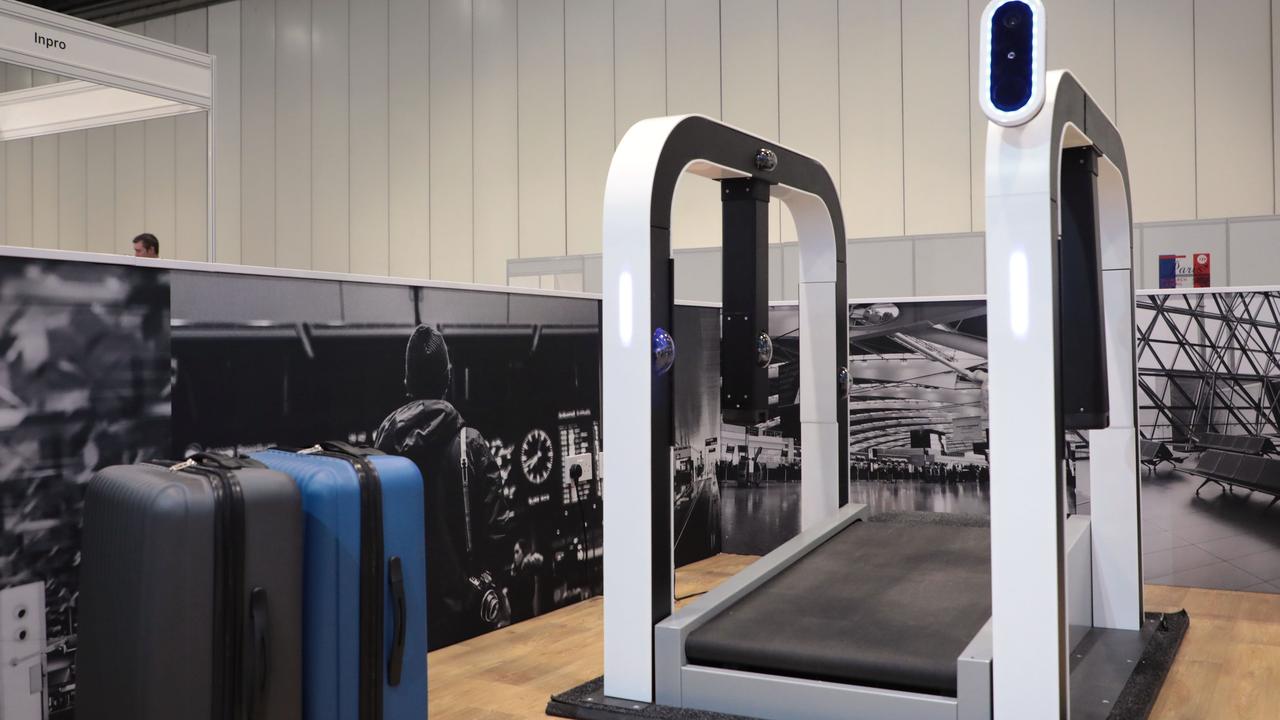
Before the passenger arrives at the terminal, they use a smart phone app — named Voyager — to upload a photo of their face and their passport.
When they arrive at the luggage drop-off, a camera identifies who the traveller is and directs them to place their bags on a conveyor belt.
Once it is loaded, multiple cameras record the luggage and link it to the biometrics of the owner — this negates the need for bag tags.
From there, the passenger can then cruise through the airport.
Similar to the bag drop-off, the traveller can be identified by a camera at a number of screens to buy duty free goods.
But instead of selecting the item off the shelf, waiting in line at the check out, buying it, and then carrying it through to their destination, the purchase is recorded and that bottle of whiskey for grandpa will be sent to your home or hotel when you arrive.
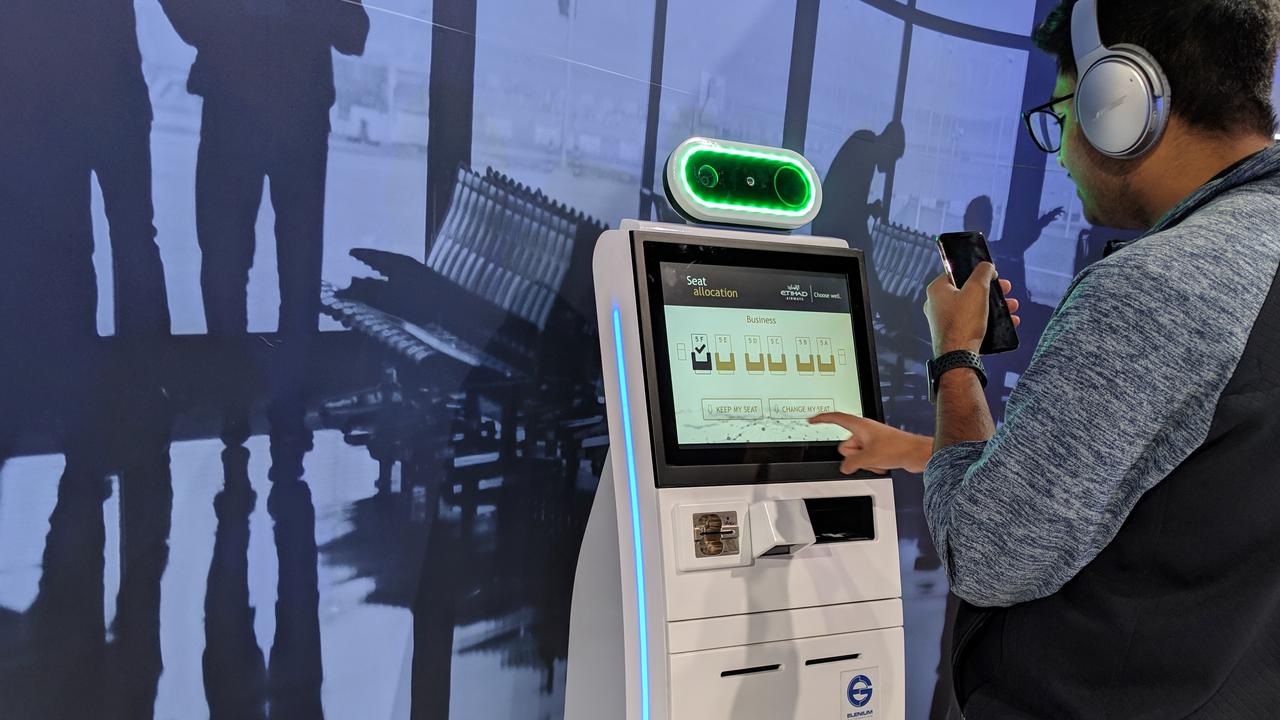
Boarding is also streamlined because the biometrics allows a free-flow of passengers onto the plane using more cameras to make sure the correct passengers are embarking.
Self service kiosk will also allow the technology to communicate with the passenger about any issues they may encounter, such as flight changes and cancellations.
“We’re really trying to push the boundaries,” Elenium chief executive Aaron Hornlimann told news.com.au.
“If you look at our bag drop we don’t even have a screen. How do you make it as easy as possible so someone knows how to naturally use it? That’s the whole concept behind it.
“If passengers are able to check-in before they get to the airport, it frees up a lot of terminal space.”
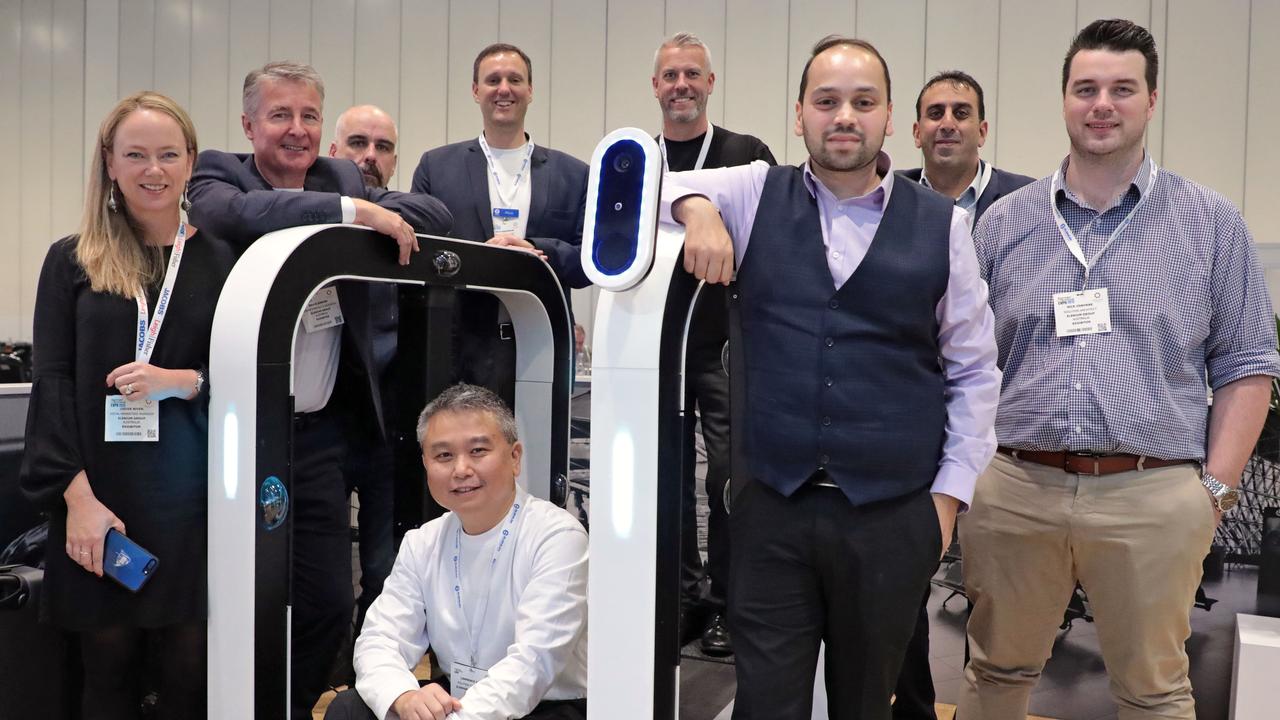
A huge portion of major airports are already at capacity and struggle under the demands of the frequency of modern travelling, Mr Hornlimann said alongside the product’s exhibition at the Amazon Web Services Summit Innovation Day in Sydney.
“How do you free up that space?” he said.
“We’re trying to move check-in away from the airport, and then make the rest of the experience as seamless as possible so passengers have a less stressful time through the airport and it also increases efficiency.”
Lost bags is one of the major gripes of travellers and the company’s chief executive said his technology would make it easier to track down lost goods because the system will have greater detail of the luggage.
But he says the mechanics of the luggage transport system will remain largely unchanged.
“While we’re trying to fundamentally change the process for the passenger, we’re not trying to change the process for the back of house because when you start making those kinds of large changes you introduce risk,” Mr Hornlimann said.
“We’re a technology company but we’re also a company that’s very much aware of the operational impacts that technology puts into an airport environment.”
As well as its deal with Etihad, Elenium has also partnered with Amazon Web Services to get the product off the ground.
As a fresh-faced 22-year-old entrepreneur in 2009, Mr Hornlimann burst onto the scene as a self-taught computer guru when he sold a world’s first mobile phone-based boarding system to Jetstar.
He told The Herald Sun at the time, it was a stroke of good luck and a matter of who he knew that he was able to enter into a research and development arrangement with the airline.
But, through his automation technology company Elenium, Mr Hornlimann is now a serious player in the world of biometric technology in the aviation industry.
Last month, the company announced it had raised $15 million for its plan to continue to rollout the technology in airports around the globe.
Continue the conversation on Twitter @James_P_Hall or james.hall1@news.com.au

